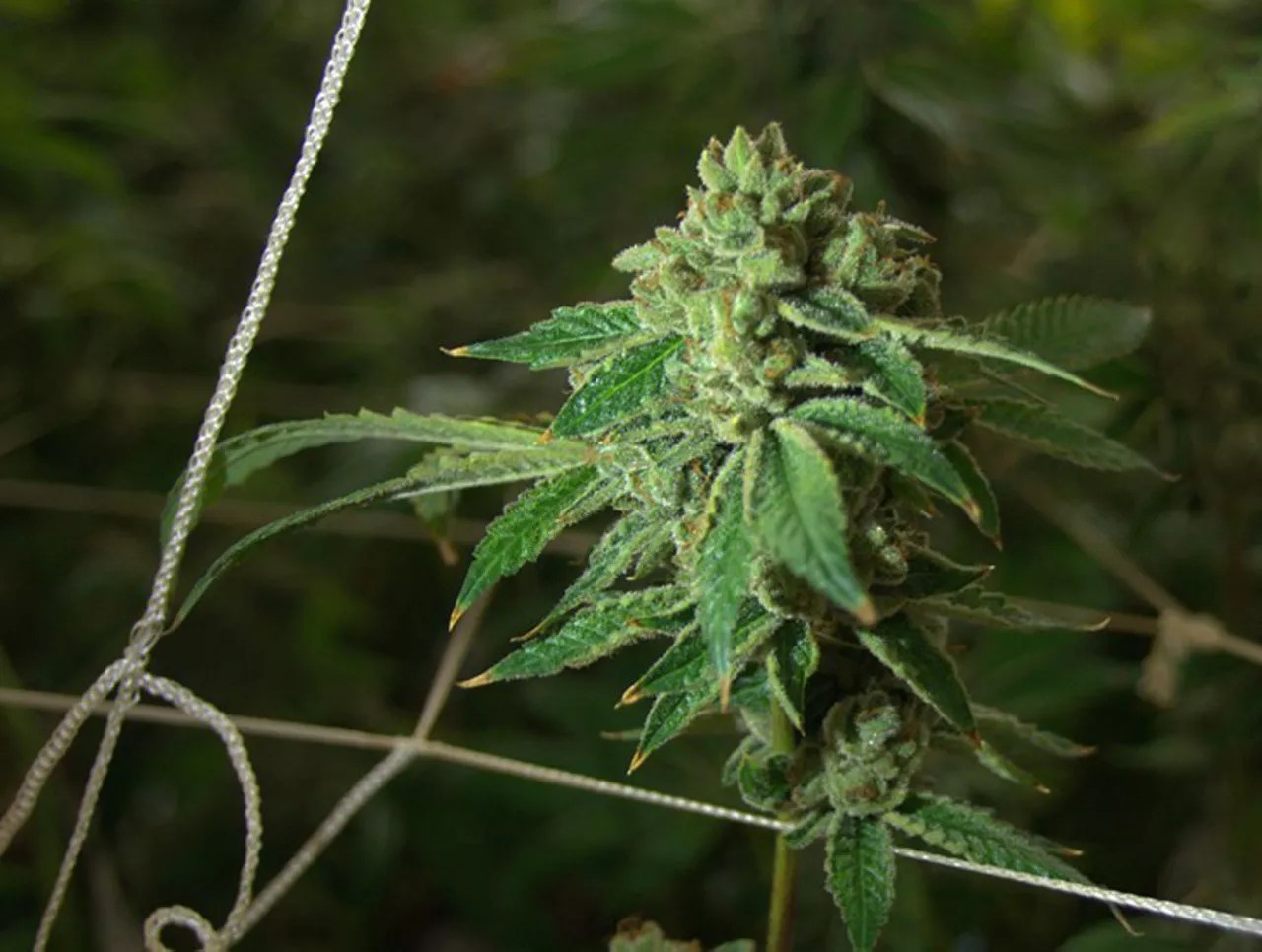
Danielle Lirette

Audio By Carbonatix
Astute Observer readers are aware that the Lone Star State has a medical marijuana program called The Texas Compassionate Use Program (TCUP). Given how the state government has long been firmly against marijuana decriminalization, let alone allowing recreational weed to become legal, it is understandably a bit surprising to many when they learn about this type of program in Texas. To be clear, the Texas style of legalized medicinal marijuana is worlds apart from what Oklahoma has been up to in recent years, where a dispensary seems to be on just about every corner these days. Compared to us, our neighbor to the north might as well be weed-friendly states California, Oregon and Colorado all rolled into one.
But still, there are options for getting your special script filled here in North Texas. Thrive Apothecary in Fort Worth is one of the only doctor-owned stores that serves novel hemp cannabinoids, such as delta-8, and Texas medical marijuana products, store manager Daryoush Austin Zamhariri said. “We are a top leading prescriber for patients to get into [the Texas Compassionate Use Program],” Zamhariri said.
What is the Texas Compassionate Use Program?
Through TCUP, patients can have access to low-THC edibles. THC is the psychoactive compound in weed that gets users high. The program, however, doesn’t currently allow patients to be prescribed medical marijuana flower. The Texas Compassionate Use Act was passed in 2015 and signed by Gov. Greg Abbott, starting the program. Initially, it was open to a very limited number of conditions, but that list has since been expanded.
Will you step up to support Dallas Observer this year?
At the Dallas Observer, we’re small and scrappy — and we make the most of every dollar from our supporters. Right now, we’re $14,000 away from reaching our December 31 goal of $30,000. If you’ve ever learned something new, stayed informed, or felt more connected because of the Dallas Observer, now’s the time to give back.
To be eligible for TCUP, you must be at least 18 years old (or have consent from a legal guardian), a permanent resident in the state and have at least one of several qualifying conditions.
Zamhariri regularly gets people in his store asking him how to get set up on TCUP. He often first explains what TCUP is and that there are a set of qualifying conditions. The store even has a little card listing some of those qualifying conditions.
They include post traumatic stress disorder, muscle spasticity, endometriosis, neuropathy, migraines, autism spectrum disorder, seizures and epilepsy, Alzheimer’s, Parkinson’s and other incurable neurodegenerative diseases, as well as cancer, multiple sclerosis, amyotrophic lateral sclerosis and more than 100 other conditions.
How to get on TCUP
Once diagnosed with a qualifying condition, a patient can arrange for a telephone consultation with a certified medical marijuana doctor.
Zamhariri said Thrive will often set up the phone consultation to see if someone qualifies for the program in the first place. If they have a qualifying condition, they can have a phone appointment with the Thrive Apothecary physician. “We really service patients all across the state,” he said. The physician can confirm records for certain diagnoses and even diagnose people for PTSD. “If they qualify for PTSD, then we can write the script there,” Zamhariri added.
“It’s just all about guiding people from point A to point B.” – Daryoush Austin Zamhariri, Thrive Apothecary
From there, Zamhariri said the doctor will set the patient up on a treatment plan, connect them with either Texas Original or Good Blend medical marijuana products and direct them to pick-up locations across the state. The doctor will also register the patient with the Compassionate Use Registry of Texas, which allows the prescriptions to be filled.
“There’s just a bunch of different steps that patients have to take,” Zamhariri said. “It’s just all about guiding people from point A to point B.”
Filling the prescription is as simple as visiting any dispensary in the state or their pick-up locations. There are pick-up locations throughout North Texas, including in Arlington, Addison, Fort Worth, Frisco and North Dallas.
Improving the program
Zamhariri said there’s a need for more education about the program across the state. Expanding the program to allow for more qualifying conditions and lifting some of its restrictions would also be a step in the right direction, he noted. It’s fair to think that people who come from other states with medical marijuana programs might have trouble wrapping their heads around Texas’ distinct guidelines.
“Texas really does it uniquely different than any other state,” Zamhariri said. “They really do treat it like it’s any other medication that a doctor’s writing a prescription for.”
While TCUP is limited, in its scope Zamhariri said it still helps a lot of people. “They [patients] just talk about how life-saving it is,” Zamhariri said. “That is verbatim what they say” ‘life saving.'”
He added, “I know that cannabis is not a cure all. It doesn’t fix everything. However, it does bring a level of quality of life that most people have not experienced, especially because they’ve gone through a lot of the pharmaceutical regimes and therapies and seen just so many different doctors, and a lot of things haven’t worked. Then, they come and try medical cannabis, and it’s literally a revolutionary change in their lives. So, it is a blessing to do the work and to talk to patients and to help get them access wherever we can get them access.”
Expanding the program to include chronic pain would be a big step, according to the dispensary owner.
“That just really covers a whole lot,” he said. “There’s absolutely a lot of opportunity to continue to work on improving the program and getting it to a place where we have a little bit more direct access to products that are continuing to change people’s lives. … There’s definitely a lot of room for growth, improvement and healing, to be honest with you.”